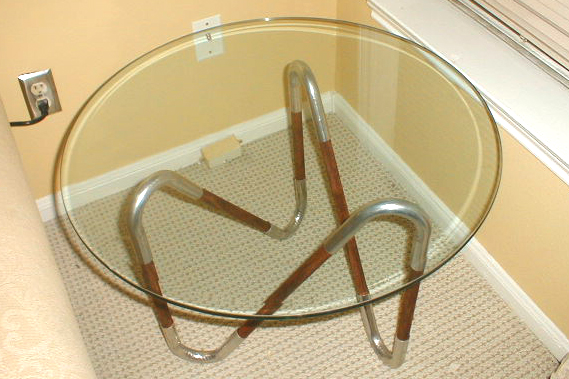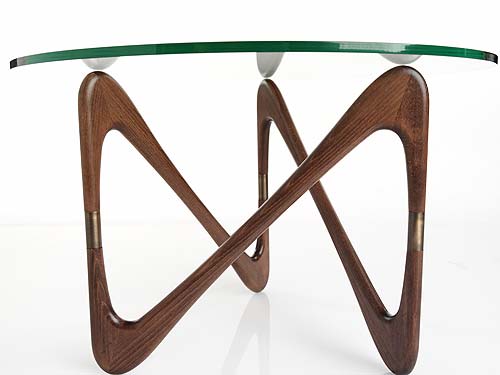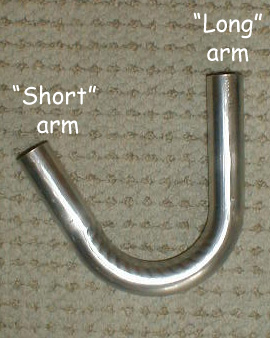[2006-09-24] Fauxbius table

The failure of "modern" design is elitist pricing. An aesthetically pleasing form, even if determined completely by its physical function, is still a failure if it requires an outlandish price tag. Although rigorously specifying materials and methods to meet the original designer's specifications exactly can, in fact, add unexpected cost to the manufacture of so-called "modern classics," as often as not high design furniture is priced not as a reasonable function of labor and materials, but by what the market will bear. This, in turn, is largely determined by consumer expectations, and we've all learned to expect by now that if we're buying something described as "modern" designed by a famous architect we can expect to pay absurd prices, even if what we're buying, ultimately, is a bunch of cut-up cardboard boxes laminated together with white glue.


The gap between labor/materials costs and consumer expectations is never more apparent to me than when browsing the inventory of the so-called "Design Within Reach" company. How, pray tell, can anyone really say that $500 side chairs are "within reach" without snorting milk through their nose? A case in point: I noticed this end table, pretentiously dubbed "Moebius" in spite of the fact that even an idealized version of the tripartite base clearly has two distinct surfaces, in their most recent catalog. The form of the base is both aesthetically and functionally delightful; besides being good-looking it is lightweight and readily breaks down for storage or transport. But the $450 price tag, sans shipping and/or sales tax, is simply ridiculous. As a demonstration of this absurdity, I set out to reproduce the concept of the table, using hardware-store parts, at a fraction of the cost, without losing any of the functional or aesthetic appeal of the original.

| Part # | Part | Vendor | Price | TX Sales Tax | Total |
|---|---|---|---|---|---|
| 1 | 6 Aluminum Hose Goosenecks | Lowe's | $21.84 | $1.80 | $23.64 |
| 2 | 3 7/8" diameter x 48" long poplar dowel rods | Lowe's | $8.94 | $0.74 | $9.68 |
| 3 | 28" Circular tempered glass table top | Hobby Lobby | $29.99 | $2.47 | $32.46 |
| 4 | Minwax Stain #215 "Red Oak" | On hand | $0.00 | $0.00 | $0.00 |
| 5 | Boiled Linseed Oil | On hand | $0.00 | $0.00 | $0.00 |
| - | TOTAL | - | $60.77 | $5.01 | $65.78 |
Each raw dowel rod is cut into into three pieces: a "short" rod, a "long" rod, and the leftover scrap. The dowels were ganged together with their ends flush so that all three could be cut at once; this procedure minimizes variations in length between equivalent rods. The "long" rods are 20", while the "short" rods are 14.75". The rods were cut using a mitre saw and then stained with on-hand Minwax 215 "Red Oak", followed by rubbing with boiled linseed oil. The table was then assembled per the photographs. Note that the goosenecks, as they come from the store, are asymmetrical, with each having a "short" and a "long" arm as shown below. The rule for assembly is easy: the "long" rods go in the "long" gooseneck arms, and the "short" rods go in the "short" gooseneck arms. The pieces are assembled with no fasteners and no glue, although it might hasten assembly to fasten groups of two goosenecks and one short and one long arm together in planar groups using epoxy or small screws.

last modified 2006-09-24